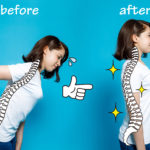Health Blog
Physical activity in leisure time may lead to less low back pain

Being active regularly is already linked with numerous health benefits
Low back pain (LBP) remains one of the leading complaints in health care, and while conservative treatment like physical therapy is helpful, it often only leads to small or moderate improvements. An emerging strategy to treat LBP has been to identify factors that predict its occurrence, so recommendations can be made to reduce them. Physical activity performed during leisure time is known to lead to various health benefits such as increased muscle strength, better physical functioning, and improved quality of life. Based on this, some believe it may also be a prognostic factor that could influence the course of LBP, but no strong evidence supports this claim. Therefore, a study was conducted that evaluated if leisure time physical activity could predict pain and disability in patients with LBP.
Status of large sample of LBP patients tracked for one year
Patients with LBP were invited to partake in the study, and 793 individuals signed on to participate. All patients were examined and given detailed questionnaires that requested information regarding demographics, depression, fear of movement, leg pain intensity, back pain intensity, disability and level of leisure time physical activity. Leisure time physical activity was dvidied into three categories: sedentary (sitting most of the time), light activity (some occasional walking or biking) or moderate-to-vigorous activity (fully physically engaged at least a few times a week). One year later all participants were asked to complete a follow-up questionnaire on back pain intensity and disability.
More physical activity was associated with less pain and disability
Of the 793 participants evaluated, 165 (21%) were categorized in the sedentary group, 444 (56%) in the light activity group and 184 (23%) in the moderate-to-vigorous activity group. Results from the questionnaires found that those in the moderate-to-vigorous group showed statistically significant reductions in pain and disability compared with the sedentary group. Based on these findings, it appears more time spent engaged in leisure time physical activity could have a protective role for patients with LBP. Since getting regular physical activity is already considered an essential ingredient to a healthy lifestyle with various other benefits, it seems advisable to recommend more physical activity for those experiencing any degree of LBP.
-As reported in the February '14 edition of the European Journal of Pain
November 22, 2014
Back to Health BlogHEALTH BLOG
- A Personalized Physical Therapy Program Can Assist with Whiplash
- Why Older Adults Should Incorporate an Exercise Program
- After an Achilles Injury, Physical Therapists Can Help with Recovery
- AI Can Answer Questions But It’s Best to See a Physical Therapist
- Physical Therapy Can Help With Symptoms of Wryneck
- Reduce the Risk of Pickleball Fractures By Taking Proper Precautions
- Physical Activity May Slow the Progression of Parkinson's Disease
- Too Much Salt in Your Diet? Learn the Dangers of High Sodium Intake
- Suffer From Lower Back Pain? Might Be Time to Take A Break
- The Road to Recovery: Preventing Re-Injury After ACL Surgery
RECENT ARTICLES

- 11 Possible Reasons Your Back HurtsJune 22, 2020

- What Conditions Can a Chiropractor Treat?May 25, 2020

- A Simple Guide to Better PostureApril 30, 2020

- Is Acupuncture Right for Me When I’m Afraid of Needles?March 30, 2020

- Stretching Done Right — How and When to StretchFebruary 26, 2020

